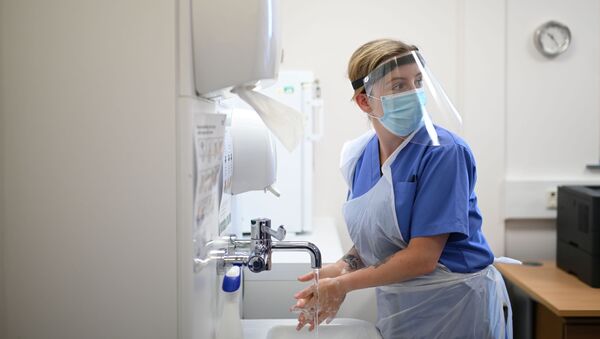The use of Personal Protective Equipment (PPE) can completely eliminate the possibility of frontline healthcare workers being infected with coronavirus disease 2019 (COVID-19), according to a peer-reviewed study newly published in the British Medical Journal.
The study, entitled Use of personal protective equipment against coronavirus disease 2019 by healthcare professionals in Wuhan, China: cross sectional study, looked at healthcare workers at four different hospitals in Wuhan, Hubei province in China, the location were COVID-19 is believed to have originated from. 420 healthcare workers were given protective suits, masks, gloves, goggles, face shields and gowns, along with other relevant PPE. The healthcare professions (116 doctors and 304 nurses) worked for 6-8 weeks in Wuhan from January to April 2020.
A team of researchers from Sun Yat-sen University, China and University of Birmingham conducted the study. Professor of Public Health and Primary Care at the University of Birmingham KK Cheng, who co-authored the study, explained the significance its significance to Sputnik.
Sputnik: Did the results of your study merely confirm what was already known or reveal something new as well?
Professor KK Cheng: That PPE offers protection is of course not novel. However, this study shows for the first time in this Covid-19 pandemic that high level of PPE confers 100 per cent protection from workplace exposures.
Sputnik: What is the difference, in terms of rates of infection, between frontline staff who have full PPE and training on the one hand and those who have little to none?
Professor KK Cheng: All our participants were trained. There was no control group as this would be unethical, not least in the context of the outbreak at the end of January when much less was known about the virus.
Sputnik: Isn't it necessary to also observe a control group of frontline healthcare workers (who did not have the appropriate PPE) in order to properly compare the results with those you observed who did have PPE?
Professor KK Cheng: The experience at the very beginning of the outbreak among local health care workers in Wuhan (and since then repeated in Europe, North America and South America) suggests that the risk of nosocomial infections [e.g. infections resulting from diseases inside hospitals] is very high with the prevailing levels of PPE provision.
Our conclusion that high level of PPE offers perfect protection at workplace is safe without a comparison group. Again, it is unethical to do a study with a control group who are not given appropriate PPE.
The study does not provide information on what the minimal level of PPE for each kind of clinical setting or procedure is.
Sputnik: How do we know the main factor in keeping these workers free from COVID-19 wasn't hygiene factors such as washing hands and disinfecting surfaces?
Professor KK Cheng: Washing hands and surface disinfection are important.
However, for direct patient contacts and procedures that expose the healthcare workers to high risk of infection by droplets or aerosol, PPEs are crucial. This is because it is well established that droplets and aerosols containing virus particles are the main modes of transmission.
Sputnik: What would you say are the main limitations of this kind of study?
Professor KK Cheng: The study does not provide information on what the minimal level of PPE for each kind of clinical setting or procedure is.
Also, we stress that the workers in this study practised very strict social distancing after work, thereby minimising the chance of being infected outside of workplace.
This is clearly not the case for healthcare workers in most other settings. Also, the finding cannot be generalised to PPE use in the community. However, none of these affects our main conclusion that that high level of PPE confers 100 per cent protection from workplace exposures.
Sputnik: Does this study need to be replicated a number of times in order to test its validity?
Professor KK Cheng: An important question is what level of PPE would reduce the risk to a very low level or remove the risk completely, which our study cannot answer. There will be study design, ethical and political challenges in conducting a study like this.
Sputnik: What are your recommendations moving forward?
Professor KK Cheng: Healthcare systems must give priority to the stockpiling, procurement and distribution of PPE, and provide adequate training to healthcare professionals in its use.
Research into the minimal level of PPE for safety would be useful, though challenging for the reasons mentioned above.
Finally, PPEs alone can only mitigate the risk of infection when healthcare workers are on active clinical duties. There are other exposures that need to be addressed if the objective is to protect them from infection by SARS-CoV-2.
These exposures include those experienced by healthcare workers during commuting on public transport and within their households where there may be members who are infected.





